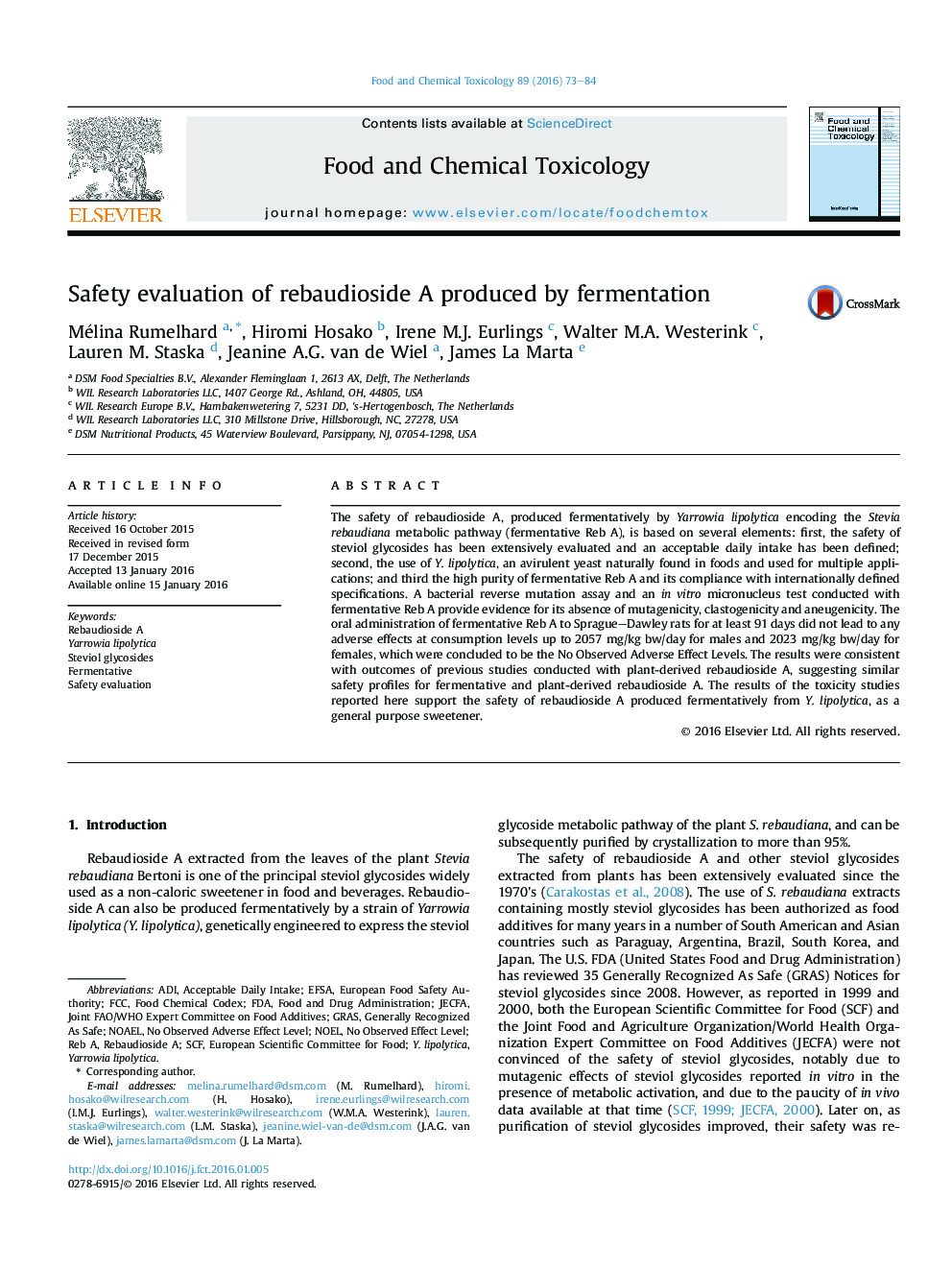| Article ID | Journal | Published Year | Pages | File Type |
|---|---|---|---|---|
| 5849480 | Food and Chemical Toxicology | 2016 | 12 Pages |
Abstract
The safety of rebaudioside A, produced fermentatively by Yarrowia lipolytica encoding the Stevia rebaudiana metabolic pathway (fermentative Reb A), is based on several elements: first, the safety of steviol glycosides has been extensively evaluated and an acceptable daily intake has been defined; second, the use of Y. lipolytica, an avirulent yeast naturally found in foods and used for multiple applications; and third the high purity of fermentative Reb A and its compliance with internationally defined specifications. A bacterial reverse mutation assay and an in vitro micronucleus test conducted with fermentative Reb A provide evidence for its absence of mutagenicity, clastogenicity and aneugenicity. The oral administration of fermentative Reb A to Sprague-Dawley rats for at least 91 days did not lead to any adverse effects at consumption levels up to 2057 mg/kg bw/day for males and 2023 mg/kg bw/day for females, which were concluded to be the No Observed Adverse Effect Levels. The results were consistent with outcomes of previous studies conducted with plant-derived rebaudioside A, suggesting similar safety profiles for fermentative and plant-derived rebaudioside A. The results of the toxicity studies reported here support the safety of rebaudioside A produced fermentatively from Y. lipolytica, as a general purpose sweetener.
Keywords
Yarrowia lipolyticafermentativeGRASFDANOELRebaudioside AEFSAJECFAFCCSCFNOAELADIEuropean Food Safety AuthoritySafety evaluationSteviol glycosidesgenerally recognized as safeAcceptable daily intakeFood and Drug AdministrationJoint FAO/WHO Expert Committee on Food AdditivesNo observed effect levelNo observed adverse effect level
Related Topics
Life Sciences
Agricultural and Biological Sciences
Food Science
Authors
Mélina Rumelhard, Hiromi Hosako, Irene M.J. Eurlings, Walter M.A. Westerink, Lauren M. Staska, Jeanine A.G. van de Wiel, James La Marta,
